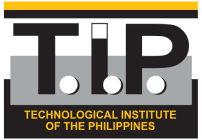

Computer Engineering is a profession that applies engineering principles and methodologies in the analysis, design, implementation and management of hardware, software and the integration of both.
The program includes courses in computer hardware, system development and design, microelectronics and embedded systems, data communication and network administration, and software development and design.
Accredited by the Engineering Accreditation Commission (EAC) of ABET, https://www.abet.org under the commission’s General Criteria and Program Criteria for Electrical, Computer, Communications, Telecommunication(s), and Similarly Named Engineering Programs
Accredited by Philippine Technological Council (PTC)
Recognition
From CHED: Center of Excellence (COE) in Computer Engineering (BSCpE)
From PACUCOA: Level IV Second Reaccredited Status in Computer Engineering
PROGRAM EDUCATIONAL OBJECTIVES
The Computer Engineering program has adopted the following educational objectives.
Three to five years after graduation, the Computer Engineering alumni shall:
• have advanced their practice or achievement in the field of Computer Engineering and/or other endeavors or advocacies supported by their acquired computer engineering education;
• strive to be globally competitive through
- living by the TIP mission values, pursuing continuing education, and practicing continuous quality improvement in their personal lives;
- continuously scanning, adopting, and building on the best practices in their field.
STUDENT OUTCOMES
Effective S.Y. 2018-2019, the following Student Outcomes of the Computer Engineering Program will apply:
- Identify, formulate, and solve complex engineering problems by applying knowledge and principles of engineering, science, and mathematics
- Apply engineering design to produce solutions that meet specified needs with consideration of public health, safety, welfare, global, cultural, social, environmental, and economic factors, in accordance with standards appropriate to the discipline.
- Communicate effectively on complex engineering activities with various communities, including engineering experts and society at large, using appropriate levels of discourse.
- Recognize ethical and professional responsibilities in engineering situations and make informed judgments, which must consider the impact of engineering solutions in global, economic, environmental, and societal contexts.
- Function effectively on a team whose members together provide leadership, create a collaborative and inclusive environment, establish goals, plan tasks, and meet objectives by applying knowledge of engineering and management principles.
- Develop and conduct appropriate experimentation, analyze and interpret data, and use engineering judgment to draw conclusions.
- Acquire and apply new knowledge as needed, using appropriate learning strategies.
For students entering as freshmen for S.Y. 2021-2022, the following SOs apply:
By the time of graduation, Computer Engineering students will have the ability to:
- identify, formulate, and solve complex engineering problems by applying knowledge and principles of engineering, science, mathematics, and an engineering specialization.
- apply engineering design to produce solutions that meet specified needs with consideration of public health, safety, welfare, global, cultural, social, environmental, and economic factors.
- communicate effectively and inclusively on complex engineering activities with a range of audiences, such as being able to comprehend, write, and present in a variety of ways effectively considering cultural, language, and learning differences.
- apply principles of ethics and commit to professional ethics, technology ethics, data ethics, global responsibilities, and norms of engineering practice; and adhere to relevant national and international laws. Comprehend the need for diversity and inclusion. Recognize ethical and professional responsibilities in engineering situations and make informed judgments, which must consider the sustainability impact of engineering solutions in human, cultural, global, economic, environmental, and societal contexts.
- function effectively as an individual member in diverse and inclusive teams and/or leader who provides leadership, creates a collaborative and inclusive environment, establishes goals, plans tasks, and meets objectives in multi-disciplinary and long-distance settings by applying knowledge of engineering and management principles,
- develop and conduct appropriate experimentation, analyze and interpret data, and use engineering judgment to draw conclusions.
- acquire and apply new knowledge as needed, using appropriate learning strategies to engage in independent and life-long learning, creativity and adaptability to new and emerging technologies, and critical thinking in the broadest context of technological change.




